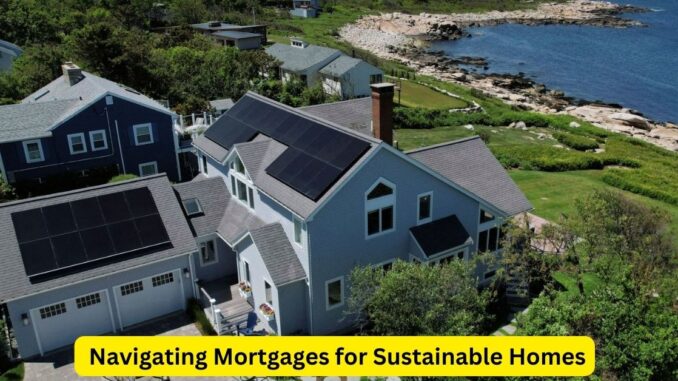
In an era where environmental consciousness is paramount, the pursuit of sustainable living extends to the realm of homeownership. Investing in eco-friendly or energy-efficient properties not only contributes to a greener future but also presents unique considerations when securing a mortgage for such homes.
Valuing Sustainable Features:
- Energy-Efficient Upgrades: Homes equipped with solar panels, energy-efficient appliances, or smart technology may qualify for specific mortgage programs or incentives due to their reduced environmental impact and cost-saving potential.
- Green Certifications: Properties certified by programs like LEED (Leadership in Energy and Environmental Design) or Energy Star often signal higher efficiency and environmental performance. Lenders might offer favorable terms for homes with these certifications.
Mortgage Options:
- Green Mortgages: Some lenders offer specialized green mortgage programs tailored to sustainable homes. These mortgages may provide discounted rates, reduced fees, or higher loan amounts to incentivize eco-friendly property purchases.
- Energy-Efficient Mortgage (EEM): EEMs enable borrowers to finance energy-efficient upgrades into their mortgage. The additional funds allocated for these upgrades are often based on estimated energy savings, allowing homeowners to make eco-friendly improvements without upfront costs.
Considerations for Buyers:
- Appraisal and Valuation: Appraisers may consider the added value of sustainable features when assessing the property’s worth. Buyers should ensure appraisers are well-versed in valuing green attributes to reflect the property’s true value accurately.
- Total Cost Analysis: While sustainable features may lead to long-term savings, buyers should consider the initial costs and weigh them against projected savings to assess the overall financial impact.
Documentation and Verification:
- Energy Performance Data: Providing documentation showcasing the property’s energy efficiency or green certifications can strengthen the mortgage application. This might include utility bills, certification reports, or energy ratings.
- Builder or Renovation Details: If purchasing a newly constructed sustainable home or planning renovations, detailed information about the materials used, energy-efficient installations, and green building practices can support the mortgage approval process.
Conclusion:
Investing in a sustainable home offers not just a commitment to environmental responsibility but also potential long-term financial benefits. As the demand for eco-friendly properties rises, mortgage options tailored to these homes become more prevalent. Buyers interested in sustainable living should explore specialized green mortgage programs, leverage energy-efficient mortgage options, and ensure proper documentation to secure financing for their eco-conscious homeownership journey. By aligning their values with mortgage choices, homeowners can contribute to a greener world while enjoying the benefits of sustainable living.

Leave a Reply